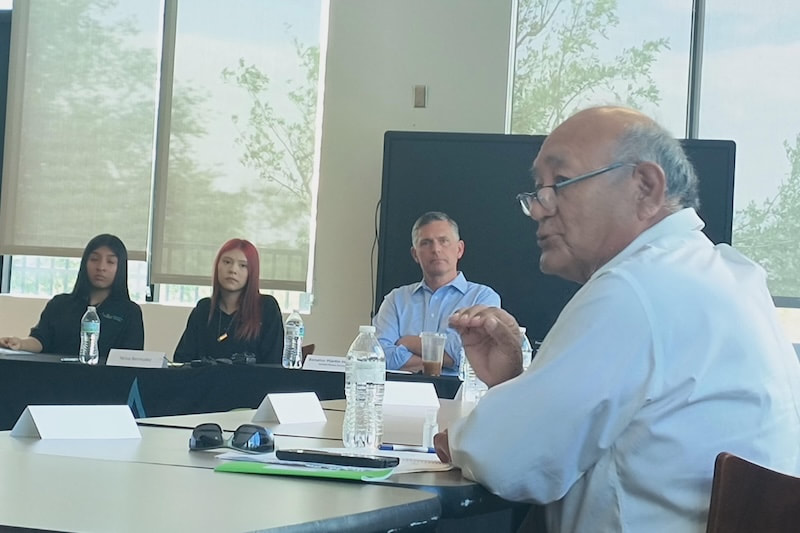|
By Alanna Dancis, Chief Medical Officer, New Mexico Medicaid
Courtesy of NM News H.R. 1 — the federal reconciliation bill that has garnered major attention over recent weeks — was just passed into law. New Mexican communities like Carlsbad stand as a warning for the rest of rural America. With 836,000 New Mexicans enrolled––nearly 40% of our population––we lead the nation in per capita Medicaid coverage. Congress just voted to pass nearly a trillion dollars in Medicaid cuts this week, and Americans need to understand that it’s not just Medicaid recipients who will suffer. The devastation from these funding cuts will reverberate through already-struggling rural communities nationwide, causing hospitals closures, lost health coverage, and job losses. Medicaid is more than a safety net. It’s the backbone of health care in our rural communities, and it supports us during life’s most vulnerable moments—when we’re between jobs, facing unexpected medical crises, or caring for an aging parent. It’s also an investment in our future, covering 55% of births in New Mexico. As New Mexico Medicaid’s Chief Medical Officer, a nurse for 17 years, and a primary care provider for 11, I view this reconciliation bill through a clinician’s lens, and I know these cuts would devastate our communities. Here are just a few examples. ADDED COST SHARING One of my patients, an older man with diabetes, relies on costly medications to keep his illness under control. While Medicare covers some cost, Medicaid fills in the gaps. Under this legislation, Medicaid copays could reach $35, and he might soon be forced to choose between groceries or medicine. Without medication, my patient’s condition could spiral into severe complications, possibly even amputation. RURAL HOSPITAL SUPPORT H.R. 1 would wind down—and ultimately eliminate— New Mexico’s $1.5 billion Healthcare Delivery and Access program, a cornerstone of hospital funding. This single cut would slash 10% of the New Mexico Medicaid budget. Six to eight rural New Mexican hospitals, including Carlsbad Medical Center, that serve hundreds of thousands of residents could close within 18 months. A rural hospital’s closure ripples through its community. Thousands of jobs vanish. Patients must travel hours longer for care. Fewer families move in, fearing lack of services. I think of my colleague who stayed in her rural town in the graduate medical education program to complete her medical residency, determined to care for her neighbors. Her hospital supports not only maternal care, primary care, and addiction treatment, but also her own future. If the hospital shuts down so does her training—and she’ll have to leave her community behind. WORK REQUIREMENTS Roughly 254,000 Medicaid members would be subject to the bill’s new work requirements. Up to 89,000 New Mexicans could lose coverage—not because they are unwilling to work, but because the policy ignores real world barriers. Many rural areas don’t have enough jobs. Some people are caregivers for family members. Some will struggle with the challenges of learning a new reporting system. The state will have to build a costly verification system, increasing the administrative burden on state employees without improving health outcomes. Most Medicaid members already work; they’re just paid so little that they qualify for Medicaid. This is not workforce development. It’s an attempt to push people off Medicaid. One of my patients has a daughter who, like many adult children, left her job in her 50s to care for her mother with Alzheimer’s. She gave up income, retirement savings, and her own health to care for her mom at home. Under this bill, she may be forced to go back to work—or lose her Medicaid coverage. That’s not a choice; it’s a no-win scenario. Medicaid, as it exists today, saves lives. It keeps rural hospitals open, supports caregivers, and ensure vulnerable New Mexicans get the care they need. The Republican’s tax bill—through copays, cuts, and work mandates—threatens that promise. I shared this information with Rep. Gabe Vasquez at a recent Medicaid roundtable, and he fought to strike some of the most harmful health care provisions from the bill. We need other leaders to step up in a similar way. We need moderation and partnership between the federal government and states. And we need to protect access to high quality, affordable healthcare—not gamble it away.
0 Comments
Your comment will be posted after it is approved.
Leave a Reply. |
Submit your ideas for local feature articles
Profiles Gardening Recipes Observations Birding Essays Hiking AuthorsYou! Archives
October 2025
Categories
All
|

 RSS Feed
RSS Feed